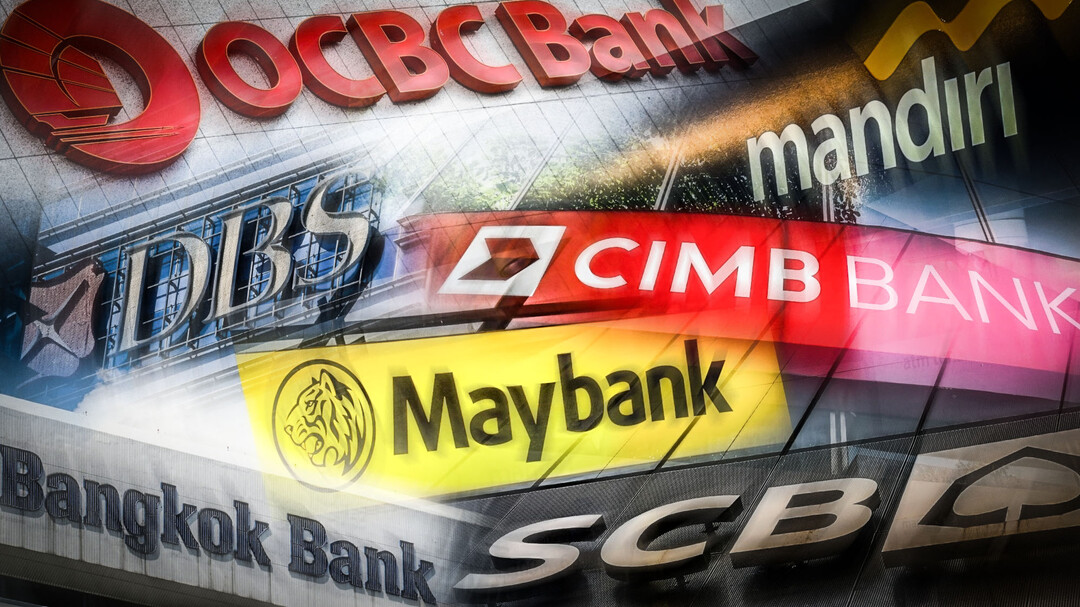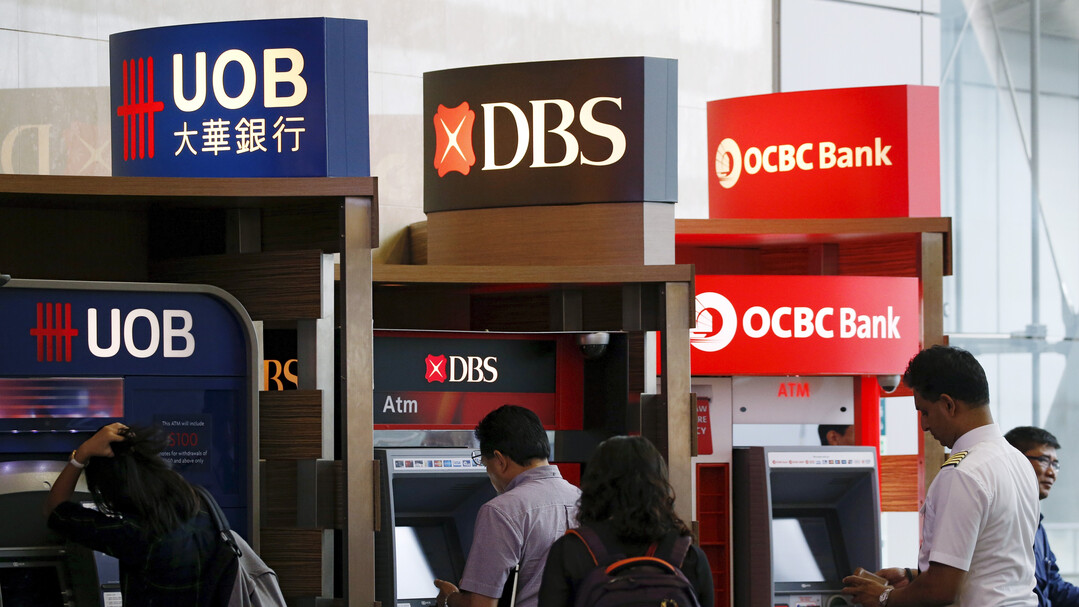
Singapore's banking industry has grown from the establishment of its first banks in the mid-19th century to its current status as one of the world's most developed financial hubs, mirroring the trajectory of Singapore's history as it transformed from a small colony, a trading post between Asia, Europe, and the United States, into a global economic powerhouse and developed nation.
Under British colonial rule, Singapore actively utilized its banking industry as an engine for economic growth and development after gaining independence in 1965. Banks played a crucial role in providing credit to businesses and entrepreneurs, funding infrastructure projects, and promoting financial inclusion.
Today, Singapore's financial system boasts a robust regulatory framework and cutting-edge fintech innovation. Furthermore, the 'Lion City' has emerged as a leader in sustainable finance, encouraging environmentally friendly financial practices and investments that support environmental and social goals.
The following are Singapore's major banks, listed in alphabetical order, each with its unique strengths and distinct history.
Citibank Singapore
Founded in New York in 1812 as City Bank of New York, Citibank entered Singapore in 1915 through the acquisition of International Banking Corporation (IBC), which was established at the turn of the century to facilitate trade between East Asia and the United States. Over the following decades, Citibank grew into a major force in Singapore's financial market, contributing to Singapore's transformation from a mere trading hub to a global financial powerhouse. As a full-service bank, Citibank pioneered products such as credit cards and 24-hour Automated Teller Machines (ATMs), serving individual, corporate, and institutional clients through a broad portfolio of financial products.
However, in recent years, Citibank's traditional branch model has undergone significant changes. In 2020, it opened its largest global wealth hub in the region in Singapore, and in 2024, it closed its last general branch in Jurong East, focusing on high-net-worth clients and online financial services.
DBS Bank (Development Bank of Singapore)
In 1968, shortly after Singapore declared independence, a small group of government officials and entrepreneurs established DBS Bank with the goal of supporting the newly formed nation's economic development. Over the subsequent decades, DBS Bank stayed true to its mission. It financed projects across all key industries, helped list Singapore's iconic brands (including Rollei, Singapore Airlines, and Singtel), and even funded the construction of the tallest building and the tallest hotel in the country at the time. Furthermore, in the 1980s, it introduced a share ownership program allowing employees to become shareholders and a home financing scheme making it easier to purchase homes. In 1997, it launched the region's first comprehensive internet banking platform, ahead of its competitors.
Today, DBS Bank is Singapore's largest retail and commercial bank, with approximately $450 billion in assets and a presence in 18 markets worldwide, providing personal, SME, corporate, wealth management, and investment banking services. DBS Bank has received numerous awards from 'Global Finance' magazine, including Best Private Bank and Best Corporate/Institutional Bank.
HSBC (Hongkong and Shanghai Banking Corporation)
London-based Hongkong and Shanghai Banking Corporation, better known by its acronym HSBC, is one of the world's largest banking and financial services companies, serving over 40 million personal, wealth management, and corporate customers in approximately 60 countries and territories.
HSBC opened its first branch in Singapore in 1877, although it had been operating through agents since 1865. In its early days, Hongkong and Shanghai Banking Corporation provided loans to Chinese merchants and financed the import, export, and entrepôt trade of spices and raw materials. In the early 20th century, it focused primarily on financing tin and rubber exports, which accounted for 35% of Singapore's total export trade at the time. HSBC also played a significant role in the reconstruction and recovery of the Singaporean economy after World War II, handling one-third of Singapore's foreign exchange and trade transactions by 1948.
Since then, HSBC has grown continuously alongside Singapore, and Singapore alongside HSBC. As a leading player in the region, HSBC provides a comprehensive range of solutions to customers in Singapore and across Asia, including retail, commercial, private, and investment banking, as well as wealth management, insurance, and capital markets services.

Maybank Singapore
As the first Malaysian bank to establish operations in Singapore, Maybank played a pivotal role in improving cross-border financial operations between the two countries and across the region with its entry into Singapore in 1960. Today, the Maybank Group has a network of over 2,600 branches in 18 countries, including all 10 ASEAN nations, and employs over 42,000 staff serving customers worldwide.
Designated as one of the Domestic Systemically Important Banks by the Monetary Authority of Singapore (MAS), Maybank Singapore has approximately $60 billion in assets and employs about 2,000 people. It offers a wide range of products and services to individuals, businesses, and corporations, including investment banking, asset management and stockbroking, insurance, and Takaful (Islamic insurance). Its presence across Southeast Asia enables it to provide seamless cross-border financing to customers and support their overseas investment ventures.
OCBC Bank (Oversea-Chinese Banking Corporation)
OCBC Bank was formed on October 31, 1932, through the merger of three banks: Chinese Commercial Bank, Ho Hong Bank, and Oversea-Chinese Bank. Since then, OCBC Bank has grown to become one of Singapore's leading financial institutions and the second-largest financial services group in Southeast Asia, with assets of nearly $500 billion and serving millions of customers through over 400 branches and representative offices in 19 countries.
With a particular focus on customers in the ASEAN region and Greater China, OCBC Bank offers a wide range of products and services, including retail banking, wealth management, and insurance.
As a leader in online banking and providing innovative solutions to its customers, OCBC Bank introduced digital banking for children aged 7 to 15 in 2024, allowing them to have their own bank accounts and debit cards and enhance their financial literacy. OCBC Bank has received numerous awards from 'Global Finance' magazine, most recently including the Best SME Bank in Asia Pacific and an Excellence in Sustainable Finance award in 2024.
Standard Chartered Singapore
Standard Chartered, then known as the Chartered Bank of India, Australia, and China, opened its first branch in Singapore in 1859. Since then, it has contributed to Singapore's development by facilitating trade, supporting local businesses, and promoting financial growth. Officially headquartered in London, the multinational bank does not operate in the UK and generates almost all of its revenue from businesses in Asia, Africa, and the Middle East. Its largest shareholder is Temasek Holdings, a Singaporean state-owned investment company.
Providing a full suite of financial services across personal, business, corporate, and private banking, as well as wealth management, investment banking, and cash management services, Standard Chartered has contributed to Singapore's transformation into the global financial and commercial hub it is today.
However, Standard Chartered's contributions extend beyond the realms of business and trade. It encourages community involvement by providing its employees with three days of volunteer leave per year. It also sponsors the Singapore Marathon (also known as the Standard Chartered Marathon), which has attracted approximately 60,000 runners from around the world annually since 1982.
UOB (United Overseas Bank)
Born in 1890 in Kuching, Sarawak, then a British protectorate and part of present-day Malaysia, Wee Kheng Chiang overcame poverty and hardship to become one of Asia's wealthiest individuals. In 1935, he co-founded United Chinese Bank with six associates to serve the banking needs of the Singaporean Chinese community. Renamed UOB (United Overseas Bank) in 1965, it has grown to become the third-largest bank in Southeast Asia, with approximately $400 billion in assets and a global network of 500 branches and offices across 19 countries in Asia Pacific, Europe, and North America.
Along with DBS Bank and OCBC Bank, UOB is one of Singapore's 'Big Three' local banks.
UOB offers a wide range of financial services, from personal banking essentials like deposits, loans, and credit cards to insurance services, trade and corporate finance, and wealth management for high-net-worth clients. UOB has received numerous accolades from 'Global Finance' magazine over the years, most recently being named the Best Bank in Asia Pacific and Singapore in 2024.
[Copyright (c) Global Economic Times. All Rights Reserved.]



























